SBA Loans: How to Maximize Recovery by Liquidating Real Property
Jimerson Firm
NOVEMBER 13, 2020
When a small business association (“SBA”) loan is converted to liquidation status, the lender must begin liquidating the collateral. However, lenders should only use this option if it maximizes recovery on the SBA loan. draft settlement statement. See SOP 50 57.

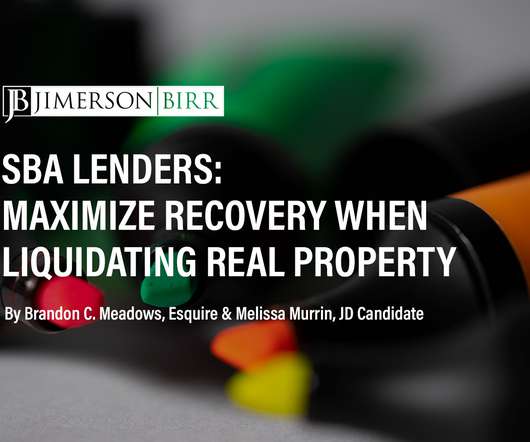
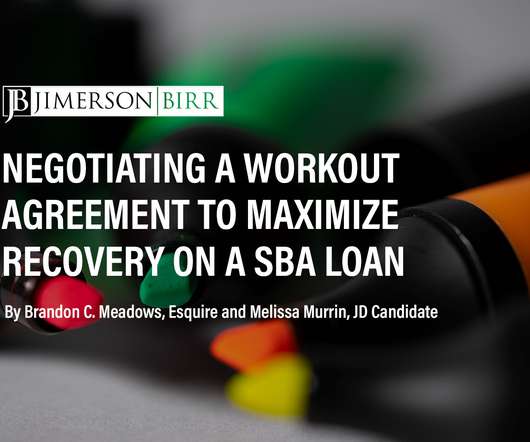
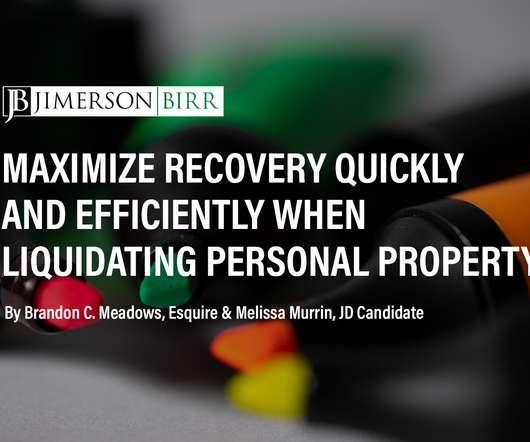

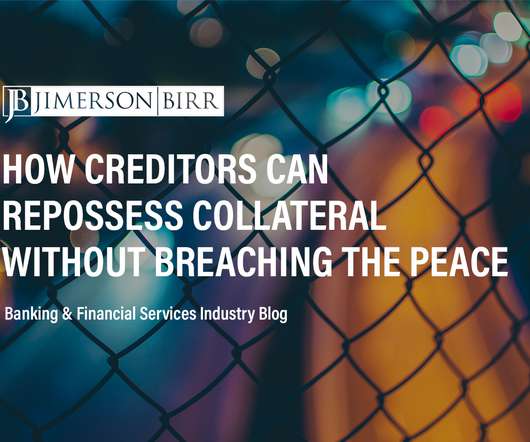
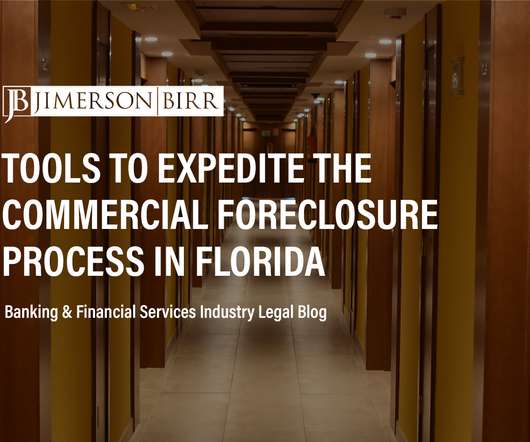
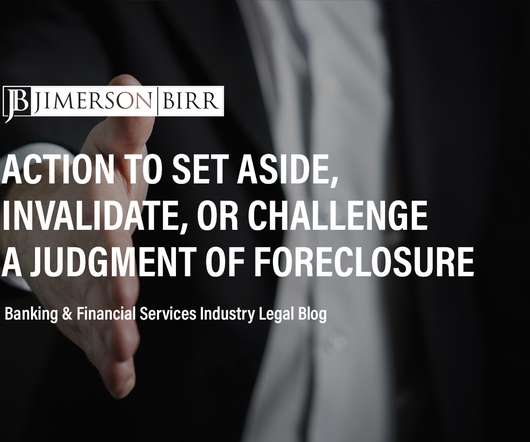
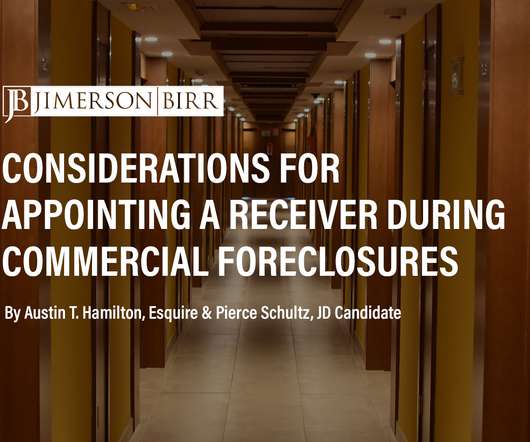
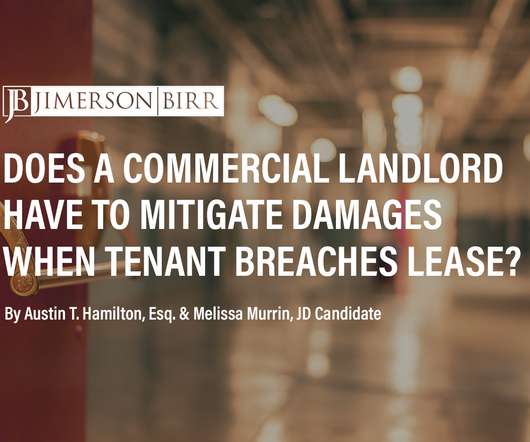
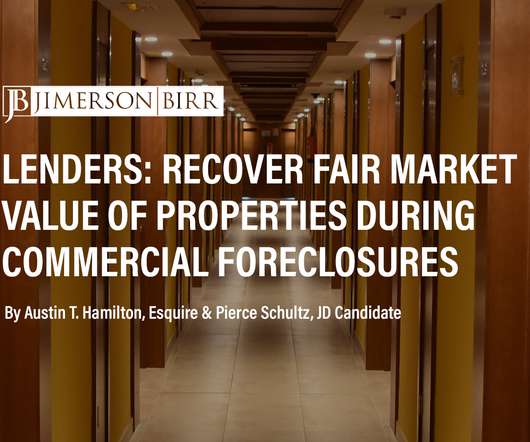






Let's personalize your content